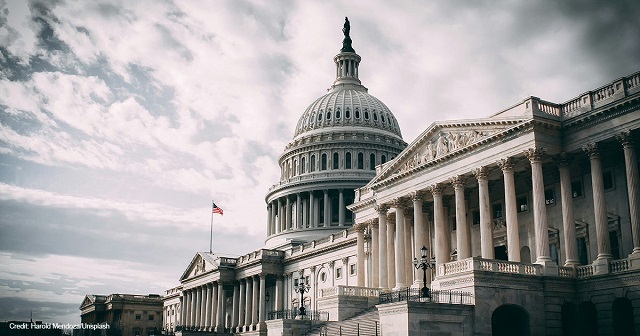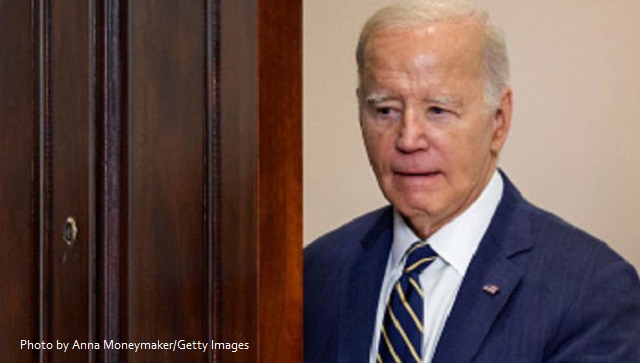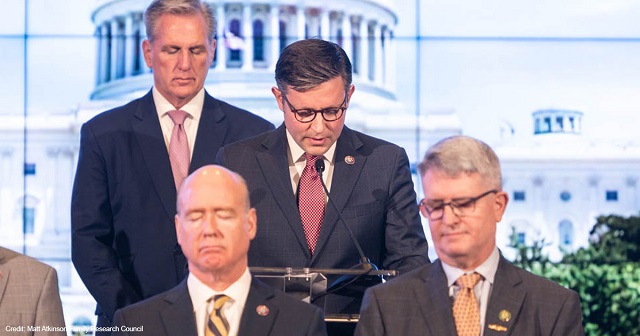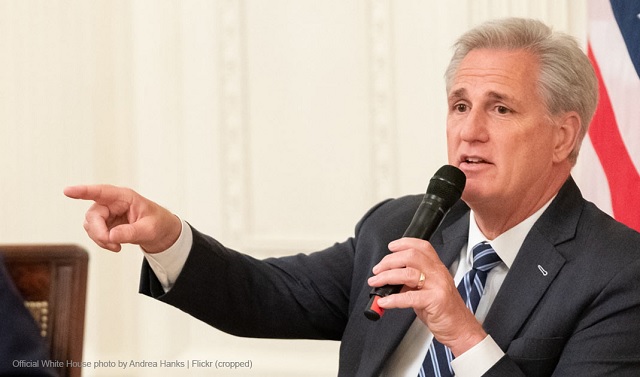This Video Builds A Rock Solid Case For Only Trump As The Commander-in-Chief

We have written about why Donald J. Trump is the only real choice for America’s patriots to become the 47th President of the United States, here, here and here.
It appears that World Net Daily’s Bob Unruh agrees with us. In his April 15th, 2024 article titled “Stunning video builds case for only Trump as commander-in-chief” Bob wrote,
A stunning new video has been delivered that makes the case for ONLY President Donald Trump as commander-in-chief.
The Gateway Pundit explains it is the “most powerful pro-Trump ad of the year” – “It is that good.”
It is from Claremont Institute chairman Tom Klingenstein, a philanthropist, public speaker, writer, and playwright.
He explains:
Now that President Trump is the Republican nominee for President in 2024, it’s time for Republicans, including those who doubt him or even can’t stand him to get behind him. The times demand it. We are in a war fighting an enemy of revolutionaries that kick and spit on America. I call our enemy the Woke regime or the Group quota regime. This war is a contest between those who love America and those who hate it. But we do not have a commander-in-chief. You can’t win a war without one. We shouldn’t much care whether our commander-in-chief is a real conservative, whether he is a role model for children, or says lots of silly things, or whether he is modest or dignified.
What we should care about is whether he knows we are in a war, knows who the enemy is, and knows how to win.
Trump does. His policies are important but not as important as the rest of him. Trump grasps the essential things. He understands the Group quota regime is evil and will not stop until it destroys America. He is a fighter, bold, brave, and decisive, who has confidence in himself and his country.
Trump never apologizes for America. He rightly believes America is the greatest country in history. Trump says, in effect, we have our culture. It’s exceptional, and that’s the way we want to keep it. And we won’t keep it if we usher in millions of immigrants with cultures different from our own. Trump knows his job is to protect Americans and just Americans. Protect them not just from enemies abroad, but from the woke globalists within. He knows that America does not need more diversity. It needs more cohesion. The woke radicals tell the Trump voters they are a threat to democracy. Think about that. They’re saying, You Trumpsters are a threat to democracy. The woke radicals also tell us ad nauseam that America is systemically racist. Trump knows this is deadly nonsense, and he says so. This charge of systemic racism bounces off Trump because he has no white guilt, or any guilt for that matter. Trump tells his supporters what they already know. They are not racist, and they do not have white privilege. The woke radicals shut up those who disagree. Trump will not be shut up. If they manage to put him in jail, he will still roar like a lion.
The woke radicals have the moral arrogance of fanatics. Trump, God bless him, knows we are all sinners. Trump rejects the utopian fanaticism of the woke radicals. He is a businessman who takes the world on its own terms and navigates by facts and common sense. Trump’s base knows firsthand the America that Trump wants to recover. They love him, and they know he loves them. They will fight for him because they know he will fight for them. Trump speaks to his supporters as fellow citizens without any condescension or poll-tested BS. Despite his billions, he is one of them, an outsider looking in, a man who takes catsup on his steak. And is as disgusted as they are with the anti-American elite.
This natural appeal has molded everyday patriotic Americans into an army. We cannot stop the left’s revolution and retake the nation without these men and women. Unlike most Conservatives, they will actually fight for America. But they follow Trump. Without him, they stay home. With him, they are united and determined. At his rallies, his audience invariably breaks into chants of USA, USA. In these moments, Trump and his audience mutually pledge to each other their fidelity and their sacred honor.
His enemies hate him with an indescribable fierceness. Another Hitler, they say. Elect him and he will be a dictator. We should take this hysteria as reason for hope.
The America-haters rightly fear that Trump and his party are on the threshold of a successful counter-revolution. Trump hates his enemies every bit as much as they hate him. His enemies are America’s enemies. Trump is the most towering figure of our time. He has changed politics, not just in America, but in the West. If we are to take back America, we need someone who is unmovable, who has proven that he can stand up against the immensely powerful army of woke modernity that will attack him with all its might. Someone who will go after the deep state without pity or compassion. And someone who has the conviction that America is still the last best hope of Earth. That someone is Trump. Trump, the politician, came out of the blue. An unconventional commander against an unconventional enemy. Almost inconceivable as President at any other time.
Trump fits this turbulent moment to a T. Is it too much to wonder whether the appearance of this most unconventional man is providential?
Lincoln spoke of Americans as the almost chosen people. Trump gives us hope that the God who has never forsaken his almost chosen people will not do so now.
WATCH: Claremont Institute chairman Tom Klingenstein on Trump’s Virtues – Part II.
Now that former President Trump is the Republican nominee for President in 2024, it’s time for Republicans, including those who doubt him or even can’t stand him, to get behind him. The times demand it. pic.twitter.com/UZv5fYrvyj
— Tom Klingenstein (@TomKlingenstein) April 4, 2024
The Bottom Line
In our column Comparing Two Democrats: Confederate Jefferson Davis and Joseph Robinette Biden, Jr. we warned that America is in a Civil War 2.0.
American Civil War 2.0 is about destroying our Constitutional Republic and replacing it with a one world order. It also requires the enslaving of the American people.
It is yet to be seen if it will become a fully armed conflict, although we are witnessing groups like the pro-Hamas supporters calling for “the death of America” and their storming of the White House and violent marches across America waving the flag of the terrorist group Hamas and the burning of the American flag.
Unlike the Civil War of 1861, the American Civil War 2.0 is in essence not seceding from the United States but rather destroying it from within by a cabal of traitors.
Abraham Lincoln wrote, “America will never be destroyed from the outside. If we falter and lose our freedoms, it will be because we destroyed ourselves.”
We know what President Donald J. Trump must do when inaugurated on January 20th, 2025.
He must drain the swamp from the schoolhouse to the White House, completely and totally.
©2024. Dr. Rich Swier. All rights reserved.
RELATED ARTICLES:
Seriously?!? Stephen Colbert Spots ‘Unsettling’ Poll Where Trump Has A Huge Lead
Prosecutors In Trump Cases Accused Of Corruption In New Documentary
Massive Crowd Greets Trump in Harlem
Trump Speaks Out on Day 1 of ‘Hush-Money’ Trial in New York | The Epoch Times
New Poll Shows BIG Trouble For Biden In Former Swing State
POSTS ON X:
Trump in Harlem 🔥
— ALX 🇺🇸 (@alx) April 16, 2024
Little kids in Harlem to President Trump as he visits their neighborhood:
“I love you, Trump!” ♥️ pic.twitter.com/G1CLOAjHXb
— Karoline Leavitt (@kleavittnh) April 16, 2024
President Trump will put New York in play this November!
It is only Day 2 of this show trial, and President Trump is already breaking the internet by visiting Jose Alba's bodega.
Alba was shipped to Rikers Island by Bragg after acting in self-defense.
— Lee Zeldin (@LeeMZeldin) April 16, 2024
Bill Barr on why the New York hush money case is a bunch of nonsense, and why he’s voting for Trump in November. Now this is a surprise! pic.twitter.com/3TK5ddHSkf
— Dinesh D'Souza (@DineshDSouza) April 17, 2024














